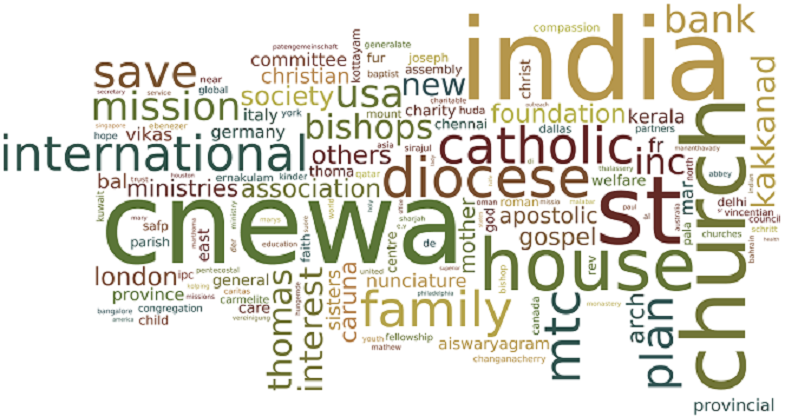In the light of recent events—of cancellations of FCRA-NGOs and tightening FCRA laws—we have revisited Sri Pratap Bhanu Mehta’s 2011 article: http://archive.indianexpress.com/news/that-seventies-feeling/804154/0 and see, how, in hindsight, his arguments back then were invalid.
 First, his dangerous suggestion that the notion of accountability is outdated. Beneath the florid prose, we can merely surmise that he expresses concern over the administrative overload involved in having NGOs renew their licenses regularly instead of granting them a license for life.
First, his dangerous suggestion that the notion of accountability is outdated. Beneath the florid prose, we can merely surmise that he expresses concern over the administrative overload involved in having NGOs renew their licenses regularly instead of granting them a license for life.
To this, we merely submit that two-wheeler owners, small restaurant owners and pharmacies are required by law to renew their licenses regularly. Their number is far larger than the 40,000 NGOs involved.
As to the need for such an exercise, the culling of NGOs that had their licenses cancelled is an argument by itself. Most of the NGOs thus removed were no longer in existence.
Second, he is worried about restricting the ability of NGOs to enter into commercial activity and/or use their grants and other income to create investments. Our argument is merely that, very often, NGOs are a means for individuals to amass wealth for themselves. I would only point to this report to show that NGOs have actually amassed a massive corpus of Rs. 6000 crore of cash invested as bank deposits.
This report describes how much money has gone into creating land banks for NGOs . Anywhere between 50 crores to 200 crores a year is being spent by FCRA registered NGOs in buying land alone. Also, there is no requirement as yet for such NGOs to submit their accounts to ensure that funds are indeed being spent for the purpose collected.
Thirdly, Mr. Mehta insists that there is the politics of fear involved. However, on the contrary, there is enough data to suggest that there is no fear of Hindu dominance in this sector.Data in this report suggests that fund flows to Christian charities is roughly 20 times than that Hindu charities get. While organizations that declare themselves non-denominational get roughly 65 per cent of the FCRA funds, a quick word-cloud of their donors suggests that they may not necessarily be non-denominational.
Clearly, this is an asymmetry that must be redressed at least through appropriate reviews and follow up procedures and action. Fourthly, as to Mr. Mehta’s claim that fears of foreign influence are a ‘bogey’ raised through ‘paranoia’, we would point out that many of these NGOs are involved in advocacy and activism, with a view to bringing about changes in the legal regime and in public opinion. As the saying goes, ‘he who pays the piper calls the tune.’ It is neither comforting nor advisable to have policy changes and public opinion in India shaped by forces that operate from outside. The foreign donor need not necessarily desire the best outcome for the Indian populace. Fifthly, Mr. Mehta claims that there is a ‘fear of ideas’ and claims that research needs intelligence vetting.
We would merely point out that not all research is benign. Indeed, one needs to go through the Twitter timeline of the deported Amnesty International activist Ms. Christine Mehta to know the nature of the ‘research’ she was engaged in. His final complaint is about a ‘contempt for freedom’. His entire argument here is so efflorescent that we had no means of providing a rebuttal, focused as we are on facts and logic.
 We wish to place on record our immense gratitude for the indefatigable @sighbaboo for his work in building the data on FCRA and for reviewing this article for factual and logical errors. Thanks are also due to the nameless, faceless bureaucrats of the Ministry of Home Affairs, GOI, who have drafted the FCRA regulations and also made this data available to the public. Finally, we must place on record our gratitude to Shri P. Chidambaram, under whose stewardship as Home Minister, these regulations were put in place.
We wish to place on record our immense gratitude for the indefatigable @sighbaboo for his work in building the data on FCRA and for reviewing this article for factual and logical errors. Thanks are also due to the nameless, faceless bureaucrats of the Ministry of Home Affairs, GOI, who have drafted the FCRA regulations and also made this data available to the public. Finally, we must place on record our gratitude to Shri P. Chidambaram, under whose stewardship as Home Minister, these regulations were put in place.
Full disclosure: The writer is a professional, gainfully employed, and is not in any way connected to any political party, establishment, advocacy group, civil society group or NGO. He writes in his spare time simply out of concern as a citizen of India and a committed Hindu.

